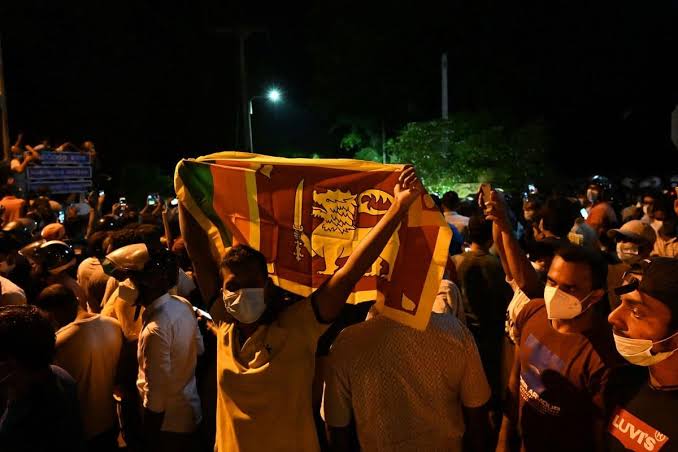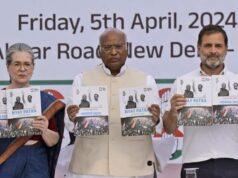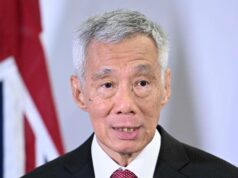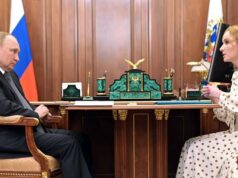Replication of Sri Lankan crisis worries other South Asian countries

By
P K Balachandran
Ever since Sri Lanka got into an unprecedented economic bind, and calls for the resignation of President Gotabaya Rajapaksa mounted, there has been a tendency to see a “Sri Lanka type of situation” emerging in other countries of South Asia as well.
Like Sri Lanka, other South Asian countries are facing a steep rise in prices, a foreign exchange crunch, wastage of resources due to irrational and politically-driven populism, and misuse of resources and tax
concessions/subsidies for private gain. Problems have been created also by politically motivated foreign borrowings, deficit financing to meet political ends, and insufficient foreign and domestic investment. Of course, a fall in proceeds from exports, tourism and foreign remittances due to the COVID-19 pandemic, has also occurred.
Despite decades of talk about carrying out economic reforms, precious little has been done on the ground in the South Asian region. Plans are drawn up and systems put in place principally to achieve narrow and short-term political ends rather than the long-term good of the economy. Economic policy is not meant to spur growth and investment and provide employment and earnings, but to buy off voters with freebies. Tax concessions are given without ensuring that they lead to growth. Poor tax collection adds to the problem.
After Sri Lanka paid the price for taking this path for decades, commentators in similarly placed countries in the region are wondering if they will also go the Lankan way.
On April 12, Sri Lanka announced that it is temporarily stopping the re-payment of foreign debt due this year, so as to be able to pay for essential imports. Reuters says that the country has to pay a foreign debt of about US$ 4 billion this year, including a US$ 1 billion international sovereign bond maturing in July. Finance Minister Ali Sabry told the agency that Sri Lanka will need US$ 3 billion in external assistance over the next six months to help get essential items including fuel and medicine. The news agency further said that Sri Lanka has US$ 12.6 billion in outstanding international sovereign bonds, and that it had foreign reserves of US$1.9 billion at the end of March.
“The island nation’s reserves have slumped more than two-thirds in the past two years, as tax cuts and the COVID-19 pandemic badly hurt its tourism-dependent economy and exposed the government’s debt-fueled spending,” the agency said in explanation. The Central Bank has now increased interest rates by 700 basis points in a bid to tame inflation, it added.
India has pitched in with loans totaling US$ 2.5 billion, and China is working on a loan of US$ 2.5 billion but the delay is worrying. The ADB, World Bank and bilateral partners are also expected to help. Bangladesh has already granted US$ 250 million.
Nepal
Nepal appears to be facing a similar problem, though not as acute. Like Sri Lanka, Nepal is a heavily import-dependent economy. Foreign exchange is spent on import of a plethora of essentials. The paucity of forex has a devastating effect on the economy naturally. The rise in the prices of food and petroleum in the international market aggravated the situation. A drop in remittance during the pandemic has added to the woes.
According to Reuters, Nepal’s foreign exchange reserves fell by over 18% to US$ 9.6 billion in mid-March 2022, compared to mid-July 2021. Remittances fell 3.0% to US$ 5.3 billion between mid-July 2021 to mid-March 2022. Earnings from tourism are nowhere near the 2019 level.
To help out suffering businesses, the Nepal Rastra Bank (NRB) provided refinance up to Nepali Rs 153 billion at 5% interest. But the cheap money was used to increase luxury imports and to invest in real estate and shares. The NRB failed to discipline the irresponsible rich.
But still, Nepal is unlikely to go the way of Sri Lanka because it has not resorted to taking short-term loans at high interest rates. Further, unlike Sri Lanka, Nepal has welcomed the US$ 500 million Millennium Challenge Corporation scheme for the road and power sector. USAID is to give US$ 659 million for the health and education sectors.
In Pakistan, inflation had risen to 23%. To help the poor, the Imran Khan government slashed petroleum prices. But this only increased the debt burden. The new government of Shehbaz Sharif will have to raise taxes. But these are likely to be indirect taxes to be paid by the poor majority.
In India, some States like Punjab, Andhra Pradesh, and West Bengal are on a populist spree straining the resources of both the State and the Central government, according to the website Quartz. The fetish for freebies has made some commentators wonder if some States will go the Sri Lanka way.
Punjab’s debt-to-GDP ratio is 53.3%, against the ceiling of 20%. The new AAP government has announced INR. 1,000 a month to every woman aged over 18, and 300 units of free electricity for homes. In West Bengal, debt is more than a third of the State GDP due to freebies. Rajasthan and Chhattisgarh have reinstated pension schemes, with few new sources of income to cover for them.
Bangladesh
Seeing the forex crisis in Sri Lanka, Bangladesh Prime Minister Sheikh Hasina met government’s finance officials to know the situation in her country. But she was told that there is no risk of Bangladesh not being able to repay its foreign loans at least in the next 5-10 years. Finance Secretary Abdur Rouf Talukder said that Bangladesh’s revenue growth has been 15% in the last eight months, private sector credit growth has been 11% and exports have also been witnessing tremendous growth.
Fatima Yasmin, secretary of the Economic Relations Division, pointed out that the bulk of Bangladesh’s foreign loans were from multilateral lenders. In Sri Lanka, on the other hand, commercial and international sovereign bonds accounted for the bulk of the foreign debt.
After listening to the presentations, Sheikh Hasina ordered the officials to see that the foreign debt situation is kept under control and the economy continues to be on an even keel.



